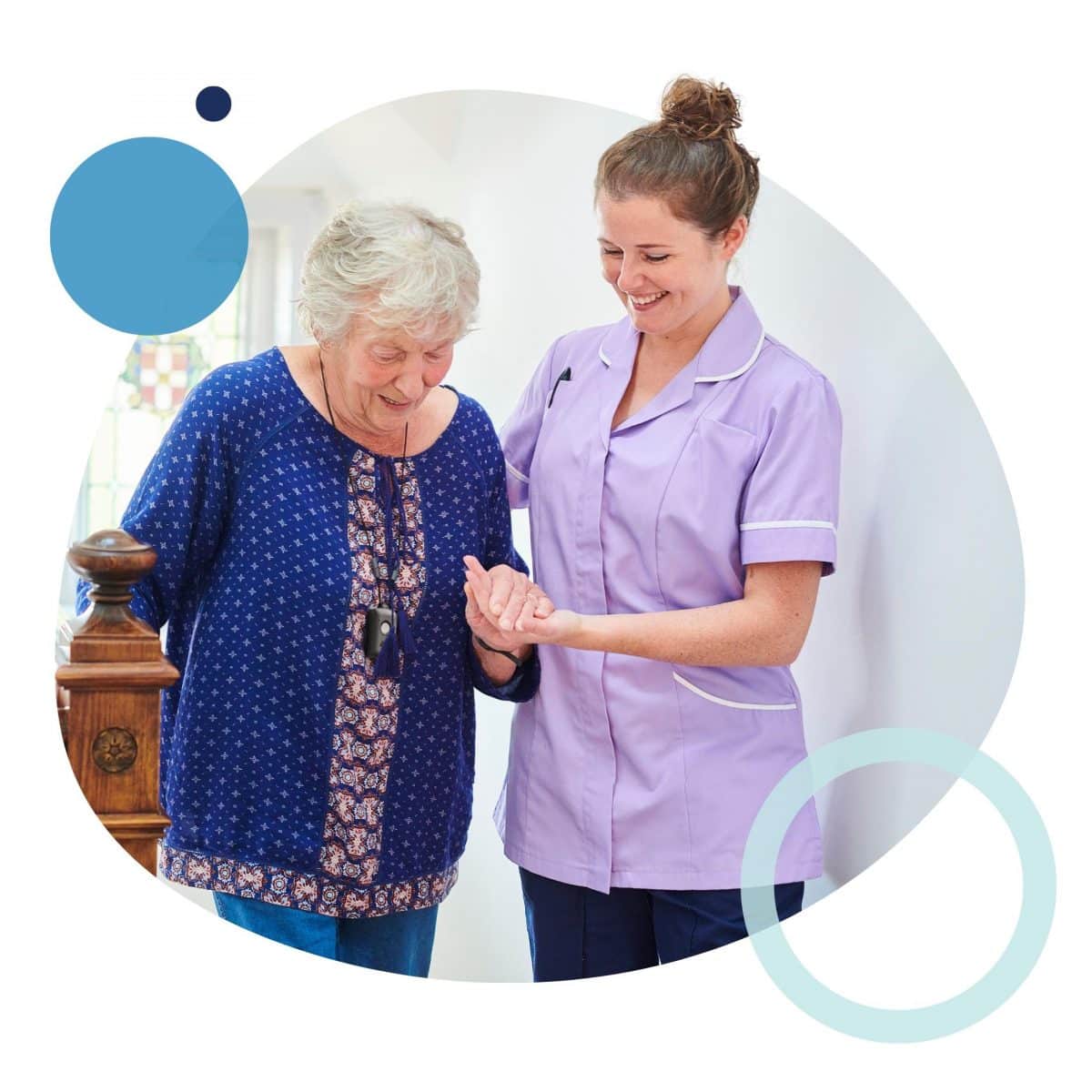Home Care Providers and NDIS Support Coordinators: How to Maximize Your In Home Care Experience
Home Care Providers and NDIS Support Coordinators: How to Maximize Your In Home Care Experience
Blog Article
The Growing Demand for In Home Care Givers: Reasons Households Select Specialist Care Over Traditional Facilities
The raising preference for in-home caregivers over conventional centers is a significant pattern reshaping the landscape of older treatment. Family members are drawn to the advantages of individualized care that straightens with individual needs and preferences, permitting seniors to preserve a feeling of freedom in an acquainted environment. This change also highlights the economic and emotional factors to consider that influence decision-making. As we discover the myriad variables adding to this expanding need, the implications for both caretakers and families become progressively apparent. What does this mean for the future of caregiving?
Customization of Care
Customization of treatment in home caregiving is important for meeting the distinct requirements of each person (home care providers). This method makes sure that treatment plans are customized to the certain needs of the person, considering their case history, personal preferences, and way of life. By concentrating on the person's one-of-a-kind situations, caregivers can cultivate a feeling of self-respect and freedom, which is usually doing not have in even more institutionalized settings

In addition, the ability to adjust care strategies as needs progress is essential. Home caregiving enables constant monitoring and alteration of care techniques, ensuring that changes in wellness status or personal choices are immediately dealt with. This adaptability not only boosts wellness results but likewise improves the lifestyle for people getting care. Inevitably, individualized care in home settings dramatically adds to the overall wellness of customers, making it a crucial part of contemporary caregiving techniques.
Convenience of Home Setting
The comfort of a home atmosphere plays an important duty in the efficiency of home caregiving. Many individuals, specifically senior citizens, experience enhanced tension and anxiety when placed in unknown setups such as traditional care centers. Home caregiving offers a familiar ambience, full of personal valuables, valued memories, and the complacency that originates from being in one's own room. This knowledge can considerably improve psychological well-being, which is essential for recuperation and overall wellness.
Additionally, the home setting permits a tailored approach to caregiving, accommodating specific preferences and regimens. Family members can develop an ambience that reflects their enjoyed one's lifestyle, ensuring that treatment is delivered in a way that really feels natural and comfy. This tailored setting encourages better communication and communication in between caregivers and customers, promoting trust and connection essential for reliable care.
Furthermore, the convenience of home can assist in social connections, as relative and friends can visit extra easily, supplying crucial emotional support. ndis plan manager. In general, the home atmosphere not just assists to maintain dignity and autonomy but likewise adds to a better of care, making it a recommended option for family members looking for professional caregiving remedies

Boosted Self-reliance for Seniors
Home caregiving not just gives convenience however likewise advertises improved freedom for elders. Unlike traditional facilities, in-home treatment allows senior citizens to preserve their daily regimens and take part in familiar activities within their own atmosphere. This freedom is crucial for their psychological health and total lifestyle.

In addition, in-home caretakers can adapt their solutions to cater specifically to the unique requirements of each senior, advertising a greater feeling of control. This versatility makes sure that seniors can appreciate their leisure activities, interact socially with family members and good friends, and remain active in their neighborhoods, additionally enhancing their feeling of self-reliance.
Inevitably, in-home caregiving not only addresses the physical needs of elders however also equips them to lead meeting lives, making it an increasingly prominent choice for households seeking the very best care remedies for their loved ones.
Cost-Effectiveness of In-Home Care
In-home treatment offers an economical choice to conventional nursing centers, allowing households to give quality support for their loved ones without incurring inflated expenditures. The expenditures connected with retirement home can be frustrating, frequently surpassing $100,000 yearly, which advice can drain funds quickly. In contrast, in-home care services normally charge on a hourly or per-visit basis, enabling households to tailor care plans according to their budget and particular needs.
Moreover, at home treatment removes added costs connected with center living, such as transport, board and room, and different management fees. Family members can pick to involve caretakers just when essential, possibly reducing overall expenses. A significant benefit of in-home care is the capability to maintain personal regimens, which can add to much better emotional well-being and reduce the demand for costly medical interventions resulting from sudden way of life modifications.
Insurance protection, consisting of long-lasting treatment insurance policy, often includes in-home treatment services, further improving financial ease of access (in home caregivers). Generally, the cost-effectiveness of in-home treatment not only reduces the financial worry on households yet likewise advertises a much more individualized method to care that lines up with specific choices and requirements
Structure Stronger Family Links
Supplying care in an acquainted atmosphere fosters deeper family connections, allowing liked ones to proactively join the caregiving process. In-home care develops opportunities for households to involve meaningfully with their impaired or elderly relatives, promoting psychological bonds that can be challenging to attain in institutional settings. The visibility of expert caregivers makes it possible for relative to concentrate on their relational duties as opposed to being burdened by the physical demands of care.
In addition, in-home care allows households to keep their treasured routines, which can reduce feelings of anxiety and disorientation often connected with relocation to care centers. Shared dishes, acquainted environments, and the convenience of home supply a sense of security that boosts health and cultivates open interaction.
Families can work together with caregivers to establish personalized care strategies that reflect this article the individual preferences and requirements of their enjoyed ones. This collaborative approach not just empowers the elderly but click now additionally strengthens the family system, as members share obligations and support each other with tough times. Inevitably, in-home treatment grows a caring environment where partnerships can flourish, boosting the high quality of life for both caretakers and recipients.
Conclusion
The increasing choice for in-home caretakers highlights a considerable shift in exactly how families approach elderly treatment. Individualized treatment plans, the convenience of acquainted environments, improved self-reliance for senior citizens, and cost-effectiveness jointly contribute to this fad. Furthermore, the involvement of member of the family in the caregiving procedure cultivates stronger connections and assistance networks. As these aspects straighten, in-home treatment arises as a compelling alternative to traditional centers, ultimately advertising the wellness and lifestyle for senior citizens.
Families are drawn to the benefits of individualized treatment that lines up with private demands and choices, enabling senior citizens to preserve a feeling of freedom in a familiar setting.In-home care offers an economical choice to typical nursing centers, allowing households to supply high quality assistance for their enjoyed ones without sustaining expensive expenditures. In contrast, at home treatment services typically charge on a per-visit or hourly basis, making it possible for households to tailor treatment plans according to their budget and specific needs.
In-home treatment produces opportunities for family members to involve meaningfully with their senior or disabled family members, advertising psychological bonds that can be hard to accomplish in institutional settings.The increasing preference for at home caregivers highlights a considerable shift in how family members approach elderly care.
Report this page